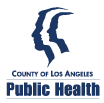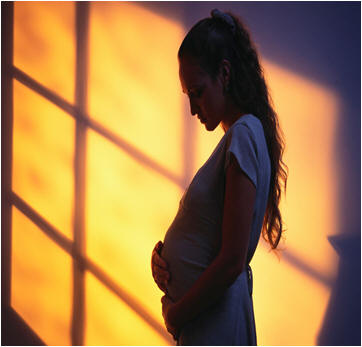The L.A. County WIC Data Mining Research Partnership between PHFE WIC and First 5 LA addresses critical gaps in information about low-income families in L.A. County.
The Los Angeles County Health Survey is a population based telephone survey that provides information concerning the health of adult Los Angeles County residents. The data are used for assessing health-related needs of the population, for program planning and policy development, and for program evaluation. The relatively large sample size allows users to obtain health indicator data for large demographic subgroups and across geographic regions of the County, including Service Planning Areas and Health Districts.
Healthy City provides data and mapping tools to help in building a better community. Customized maps of California counties including L.A. county can be generated using user uploaded data.
The Economic Roundtable is a non-profit, public benefit corporation organized to conduct economic, social and environmental research that contributes to the sustainability of individuals and communities. Research findings are made readily available to public policy makers, affected communities, and the general public.
The Health Information and Research Section (HIRS) is responsible for stewardship and distribution of vital statistics data (births, deaths, fetal deaths, marriage) and provides written reports and data tables analyzing these data. HIRS also assesses California's progress toward Healthy People health indicators and coordinates the California Health Interview Survey (CHIS) for the Departments of Public Health and Health Care Services.
The goal of CA-PMSS is to monitor deaths related to pregnancy using the most accurate information available. While the commonly used maternal mortality ratio (MMR) remains a key indicator of the overall health of a population, it relies solely on death certificate data. CA-PMSS compiles the findings from its more complex data linkage and expert committee review to create a pregnancy-related mortality ratio (PRMR), allowing California to monitor deaths related to pregnancy using the most accurate information available .
The Maternal and Infant Health Assessment, or MIHA, is an annual, statewide-representative survey of women with a recent live birth in California. MIHA collects self-reported information about maternal and infant experiences and about maternal attitudes and behaviors before, during and shortly after pregnancy. It is implemented by the Epidemiology, Assessment and Program Development Branch of the Maternal, Child and Adolescent Health Program of the California Department of Public Health in collaboration with the University of California, San Francisco Center on Social Disparities in Health.
The California Women's Health Survey (CWHS) is an annually conducted survey about women's and girls' health in California. The survey was established to provide information to policy-makers and health professionals about women's health and to serve as a catalyst for innovative solutions that impact the health of California's women and girls. The Women's Health Survey is a unique collaborative interdepartmental and private industry effort between the California Departments of Public Health, Health Care Services, Mental Health, Alcohol and Drug Programs and Social Services and private partners the California Medical Review, Inc. (aka Lumetra) and the Public Health Institute
CHIS is the nation's largest state health survey. CHIS is a random-dial telephone survey conducted on a continuous basis and covering a wide range of health topics. CHIS gives a detailed picture of the health and health care needs of California's large and diverse population. Data is provided on State and County level.
The California Birth Defects Monitoring Program collects and analyzes data to identify opportunities for preventing birth defects and improving the health of babies.
HCAI is committed to expanding equitable access to health care for all Californians—ensuring every community has the health workforce they need, safe and reliable health care facilities, and health information that can help make care more effective and affordable.
Find out about Statistics and Reports produced by Department programs as well as links to other data related to DHCS programs. DHCS is actively adding data to the CHHS Open Data Portal. To interact with DHCS data on the CHHS Open Data Portal, visit data.chhs.ca.gov.
The California Attorney General has the duty to collect, analyze, and report statistical data, which provide valid measures of crime and the criminal justice process to government and the citizens of California. The site contains statistical tables, reports, publications, links to federal, state, and local agency statistics, and links to other criminal statistics services.
OEHHA is responsible for developing and providing risk managers in state and local government agencies with toxicological and medical information relevant to decisions involving public health. The site presents data reports on risks posed by hazardous substances.
The Demographic Research Unit of the California Department of Finance is designated as the single official source of demographic data for state planning and budgeting.
Because reproductive health issues are a focus of many projects within CDC, this site features information from various programs, not just the Division of Reproductive Health as well as links to related data sources
PRAMS, the Pregnancy Risk Assessment Monitoring System, is a surveillance project of the Centers for Disease Control and Prevention (CDC) and state health departments. PRAMS collects state-specific, population-based data on maternal attitudes and experiences before, during, and shortly after pregnancy.
The US Census Bureau serves as the leading source of quality data about the nation's people and economy. The latest National Census data is made available on this site.
The mission of The Commonwealth Fund is to promote a high performing health care system that achieves better access, improved quality, and greater efficiency, particularly for society's most vulnerable, including low-income people, the uninsured, minority Americans, young children, and elderly adults
The Alan Guttmacher Institute (AGI) is a non-profit organization focused on sexual and reproductive health research,policy analysis and public education. AGI publishes Family Planning Perspectives, International Family Planning Perspectives, The Guttmacher Report on Public Policy and special reports on sexual and reproductive health and rights. The Institute's mission is to protect the reproductive choices of all women and men in the United States and throughout the world. It is to support their ability to obtain the information and services needed to achieve their full human rights, safeguard their health and exercise their individual responsibilities in regard to sexual behavior and relationships, reproduction and family formation.


